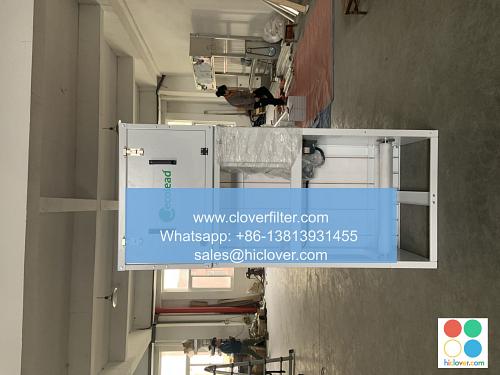The Impact of Air Filter Initiatives on Climate Change: A Review of the Evidence

As the world grapples with the challenges of climate change, air pollution, and sustainable development, the role of air filter initiatives has become increasingly important. In this article, we will review the evidence on the impact of air filter initiatives on climate change, highlighting various application areas and key technologies that are driving this field forward.
Introduction to Air Filter Initiatives
Air filter initiatives refer to the use of air filtration systems to remove particulate matter, gases, and other pollutants from the air. These initiatives have been implemented in various settings, including industrial facilities, commercial buildings, and residential areas. The goal of these initiatives is to improve indoor air quality and reduce the negative impacts of air pollution on human health and the environment.
Impact of Air Filter Initiatives on Climate Change
The impact of air filter initiatives on climate change is multifaceted. By reducing the amount of particulate matter and gases in the air, air filter initiatives can help to:
* Reduce greenhouse gas emissions and mitigate the effects of global warming
* Improve air quality and reduce the negative impacts of air pollution on human health
* Increase energy efficiency and reduce the demand for fossil fuels
* Support sustainable development and environmental protection
Application Areas of Air Filter Initiatives
Air filter initiatives have a wide range of application areas, including:
* Industrial air filtration: Air filter initiatives are used in industrial facilities to remove particulate matter and gases from the air and improve indoor air quality.
* Commercial air filtration: Air filter initiatives are used in commercial buildings to improve indoor air quality and reduce the negative impacts of air pollution on human health.
* Residential air filtration: Air filter initiatives are used in residential areas to improve indoor air quality and reduce the negative impacts of air pollution on human health.
* Transportation air filtration: Air filter initiatives are used in vehicles to remove particulate matter and gases from the air and improve indoor air quality.
Key Technologies and Innovations
Several key technologies and innovations are driving the development of air filter initiatives, including:
* HEPA filters: High-efficiency particulate air (HEPA) filters are designed to remove 99.97% of particulate matter from the air.
* Activated carbon filters: Activated carbon filters are designed to remove gases and odors from the air.
* UV air purifiers: Ultraviolet (UV) air purifiers use UV light to kill bacteria and viruses in the air.
* Smart air filtration systems: Smart air filtration systems use sensors and algorithms to optimize air filtration and improve indoor air quality.
Conclusion
In conclusion, air filter initiatives have a significant impact on climate change by reducing greenhouse gas emissions, improving air quality, and supporting sustainable development. The various application areas of air filter initiatives, including industrial air filtration, commercial air filtration, residential air filtration, and transportation air filtration, highlight the importance of this technology in reducing the negative impacts of air pollution on human health and the environment. As the world continues to grapple with the challenges of climate change, the development and implementation of air filter initiatives will play a critical role in creating a more sustainable and environmentally-friendly future. It seems like you forgot to include the prompt. Could you please provide more details or clarify what you would like to talk about? I’m here to help with any questions or topics you have in mind!

